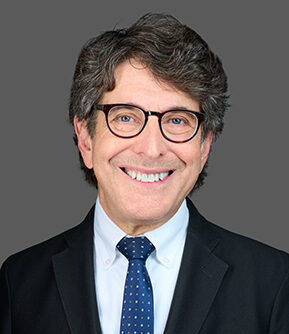U.S. Supreme Court Declines to Clarify Key Provisions of the False Claims and Anti-kickback Statutes
Last week, the U.S. Supreme Court denied the request of qui tam relators that it review the Sixth Circuit’s recent decision in United States of America ex rel. Martin v. Hathaway, No. 22-1463 (6th Cir.). In so doing, the Court declined to resolve a split in the circuit courts as to when a provider’s claim for reimbursement results from a violation of the Anti-kickback Statute (AKS) for purposes of liability under the False Claims Act (FCA) (i.e., involves the requisite causation). In denying the request for review, it also left standing the Sixth Circuit’s holding that the term “remuneration” for purposes of the AKS only covers payments and other transfers of value and is not broad enough to cover any act that may be valuable to another.[1]
As reported in our prior post, the Martin case involved the question (1) whether a hospital’s decision not to hire an ophthalmologist in return for a general commitment of continued surgery referrals from another ophthalmologist constituted remuneration covered by the AKS, and (2) whether claims from such continued referrals resulted from violations of the statute (as is required for FCA liability predicated on a violation of the AKS).
The Sixth Circuit concluded that the qui tam relators’ complaint did not establish a cognizable theory of remuneration and failed to establish causation. Accordingly, the court affirmed the district court’s dismissal of the qui tam complaint.
The facts in the case centered around an ophthalmology group with two physicians, owner Dr. Darrin Hathaway and Dr. Shannon Martin. The group had historically referred patients requiring surgery to Oaklawn Hospital, the local hospital in Marshall, MI. Because of friction in the relationship, Dr. Hathaway was preparing to merge his practice with a larger one based in Lansing. Dr. Martin sought employment with Oaklawn.
According to the complaint, when Dr. Hathaway learned that Dr. Martin was about to be employed by Oaklawn, he engaged in discussions with Oaklawn about how its employment of Dr. Martin would be a “lose-lose.” It would cost Oaklawn significant amounts to set up Dr. Martin in an ophthalmology practice and he would then be forced to take his cases elsewhere.
Further, he allegedly told Oaklawn that, with the merger, he would be relieved of a substantial part of his administrative duties and expected that he could increase business for Oaklawn. Thereafter, according to the complaint, the Board of Directors of Oaklawn voted not to hire Dr. Martin.
Dr. Martin then filed a qui tam suit against Dr. Hathaway and Oaklawn under the FCA alleging that Oaklawn’s rejection of Dr. Martin’s employment in return for Dr. Hathaway’s commitment to continue sending local surgery referrals to Oaklawn constituted remuneration covered by the AKS, resulted in a violation of the AKS and claims for Medicare and Medicaid reimbursement resulting from the kickbacks violated the FCA.
The Sixth Circuit first considered the question of whether the Oaklawn Board’s refusal to hire Dr. Martin in return for Dr. Hathaway’s general commitment to continue sending surgery referrals to Oaklawn entailed a payment or transfer of value to Dr. Hathaway. Having concluded it did not, the court held there was no remuneration as is required for a violation of the AKS.
The federal court went on to consider whether the term “resulting from” means that there must be “but-for” causation, i.e., the claim for reimbursement would not have been submitted but-for the violation of the AKS, or whether a more expansive/lenient connection between the violation and the submission of the claim is all that is required.
The court, siding with the Eighth Circuit’s decision in United States ex rel. Cairns v. D.S. Med. LLC, 42 F.4th 828 (8th Cir. 2022), adopted the more stringent “but-for” standard. This was in contrast to the Third Circuit’s opinion in United States ex rel. Greenfield v. Medco Health Sols., Inc., 880 F.3d 89 (3d Cir. 2018), where the court rejected the “but-for” requirement, holding instead that there must only be a “link” between the AKS violation and the filing of the claim, i.e., must only prove that at least one of the claims for which reimbursement was sought was provided in violation of the AKS.
In their petition requesting that the Supreme Court hear the case, the qui tam relators asserted that the Sixth Circuit’s opinion by narrowly construing the term “remuneration” to be limited to either a payment or a change to the value or cost of a service “effectively reads the term ‘bribe’ out of the statute and creates an end-around to liability under the AKS.” (A “bribe” is among the specifically identified forms of remuneration in the AKS.) They further asserted that medical providers can therefore “trade referrals for economic gain — at the expense of the government and patients — so long as there is no direct exchange.”
With respect to the causation issue, the relators argued that the Sixth Circuit’s adoption of the “but-for” standard conflicts with the text and purpose of the statutory provision establishing the “resulting from” requirement, as well as the AKS and FCA generally.
According to the relators, “If this notion is ratified, medical providers can accept a bribe in violation of the AKS but still avoid liability under the FCA so long as the government cannot prove an explicit connection between an illicit item or service with a particular bribe.”
Finally, the relators, in seeking review, emphasized the fact of the split in the circuit courts, asserting that the “government’s ability to protect itself from false health care claims will vary drastically by jurisdiction until the Court intervenes to provide clarity to the rule.”
When the Supreme Court declined last week to grant certiorari in the Martin case, it again chose to leave unresolved the split in the circuits on the causation question and to not register in on the meaning of the term “remuneration” for AKS and ultimately FCA purposes. These now await resolution another day.
[1] The AKS prohibits the knowing or willful solicitation or receipt of “any remuneration (including any kickback, bribe, or rebate) directly or indirectly, overtly or covertly, in cash or in kind . . . in return for referring an individual to a person for the furnishing … of any item or service for which payment may be made … under a Federal health care program.” The FCA establishes criminal and civil penalties for knowingly presenting … a false or fraudulent claim to the government for payment or approval.


